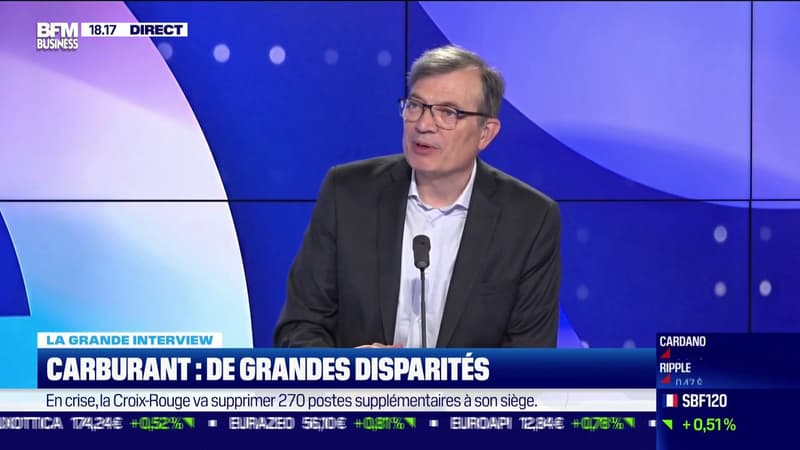Fuel prices continue to rise. According to the latest data from the Ministry of Energy Transition on Friday and published this Monday, diesel had an average price of 1.88 euros per liter, an increase of 2.3 cents, and unleaded gasoline 95-E10, 1. 94 euros per liter. When traveling around the country it is not uncommon to see stations that sell their fuel for more than 2 euros per liter.
But “the two main determinants” of these prices at service stations are “the price of crude oil (petroleum, ed.) which is a world price” and “the price of fuel products finished in Rotterdam”, recalls Olivier Gantois, guest of The great interview this Monday on BFM Business. However, when it comes to global crude oil, “France, which represents 1% of world consumption, cannot influence this price,” explains the president of the French Union of Petroleum Industries (Ufip). Fuels also cannot influence the Rotterdam price, which is the base price at which fuel must be sold in Europe.
Disparities according to the “cost structure”
“To this we add the distribution costs of around 20-22 cents per liter for both 95 unleaded petrol and diesel, the distributors’ net margin of around 1 cent per liter and taxes,” he continues.
Asked about the price disparities observed at different service stations, the president of Ufip recalls that “they come mainly from the distribution cost structure.” “A large store that sells many liters will have much lower supply costs, which will allow it to offer more aggressive, that is, lower, prices,” he explains.
Despite these limitations, distributors should be encouraged to find solutions to limit price increases at the pump. The Minister of Energy Transition, Agnès Pannier-Runacher, will receive all fuel distributors tomorrow to try to find solutions.
Source: BFM TV


